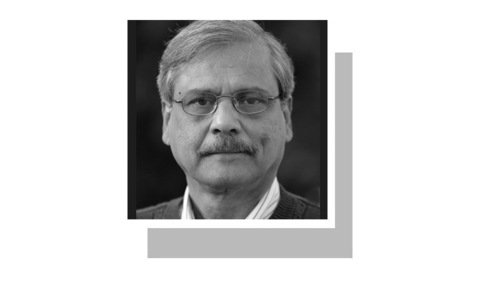TO become president of Afghanistan, Ashraf Ghani Ahmadzai changed his wardrobe and modified his name, gave up coffee, embraced a man he once denounced as a “known killer” and even took anger management classes to tame a notorious temper.
An impressive intellectual who is as comfortable in a village meeting as an international boardroom, he has been a professor and World Bank technocrat, finance minister and top security official, and was once tipped to head the UN.
A reputation as a clean, modernising technocrat won him few votes in 2009, when he first ran for office. Spurred by that defeat into a dramatic transformation, he emerged this year as a ruthless and highly effective politician. Top vote-getter in a fraud-riddled election, he steered through months of fraught negotiations to emerge as president of a unity government formed with his main rival.
Critics say that voters have been betrayed by an elite who stitched up a deal behind closed doors. Supporters argue that the concessions will pave the way for vital changes.
Both claims will be tested from Monday, when Ghani takes power and can put his theories of government to the test on the grandest of scales.
At stake is his country’s future. He will have to beat off a resurgent Taliban and build up a small, frail economy at a time when foreign funding and interest are ebbing fast.
A fierce critic of the international community, with a sharp tongue, the new president has nevertheless been tentatively welcomed by many of the diplomats who will have to fund his budgets for several years to come as he struggles to right the economy. That’s because they see in him a rare hope of shaking up a corrupt, sclerotic government bureaucracy and bringing change to an entrenched elite.
He has promised to push through a painful programme of major reforms, commission regular “citizen’s report cards” on government progress, create one million jobs and sign a long-term security deal with the US to release funds and other support for the police and military.
Activists are also hopeful that the prominent role his Lebanese-American wife, Rula Ghani, played in the campaign is a sign of wider commitment to women’s rights. “During his campaign and even after he was elected, he has said and done all the right things. He has taken the women’s vote seriously,” said Manizha Naderi, director of Women for Afghan Women.
The defeat in 2009 did not deter him, after years pouring over economic and political theory, studying corruption and governance, reforms and failure. An impressive background in academia and policymaking was not enough to win votes, so he began a slow transformation.
Rivals and analysts underestimated his single-minded determination and prodigious work ethic, and overlooked an unofficial campaign that began years before his name went on the ballot papers for the second time.
As coordinator of the gradual security handover from Nato to Afghan forces, he travelled around the country, building networks of contacts and support. He began using his tribal name, Ahmadzai, for the first time, and swapped Washington suits for traditional Afghan clothes. When election strategists told him to swear off coffee on rally days to strengthen his voice, he gave up one of his very few indulgences immediately.
Nor was any compromise too great to consider. He heralded his embrace of more morally ambiguous politics with the announcement of his main running mate, civil-war era strongman Abdul Rashid Dostum, who Ghani himself had denounced as a “known killer”.
“Our masters will be the people of Afghanistan,” he said. “We will create a scorecard of our promises and report back on their delivery systematically.”
He wants to push through one or two painful, major changes every 100 days, along with easier reforms. Ambitious plans include luring back expat Afghans and a crackdown on corruption, beginning with the men behind the $925m Kabul Bank scandal, he told journalists.
“This will be the first sign that I am not going to tolerate impunity,” he said. “The Afghan public is sick and tired of corruption, we are not going to revive the economy without tackling corruption root, stock and branch.”
By arrangement with the Guardian
Published in Dawn, September 28th , 2014












































